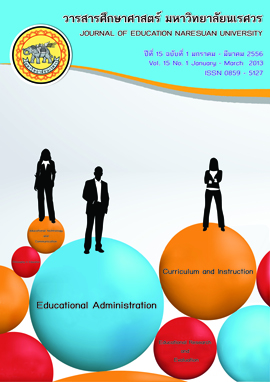กลยุทธ์การส่งเสริมจริยธรรมของบุคลากรสาธารณสุข เขตตรวจราชการกระทรวงสาธารณสุข ที่ 17
Main Article Content
Abstract
บทคัดย่อ
การวิจัยมีวัตถุประสงค์เพื่อศึกษาปัญหาจริยธรรมของบุคลากรสาธารณสุข เพื่อศึกษาสภาพ ปัญหาและความต้องการเกี่ยวกับการส่งเสริมจริยธรรมของบุคลากรสาธารณสุข เพื่อพัฒนากลยุทธ์การส่งเสริมจริยธรรมของบุคลากรสาธารณสุข และเพื่อประเมินกลยุทธ์การส่งเสริมจริยธรรมของบุคลากรสาธารณสุขเขตตรวจราชการกระทรวงสาธารณสุขที่ 17 โดยแบ่งการศึกษาเป็น 4 ขั้นตอน รวบรวมข้อมูลโดยการใช้แบบสอบถาม การสัมภาษณ์ การประชุมเชิงปฏิบัติการ และการสัมมนาอิงผู้เชี่ยวชาญ การวิเคราะห์ข้อมูลใช้การหาค่าร้อยละ ค่าเฉลี่ย ค่าส่วนเบี่ยงเบนมาตรฐาน และการวิเคราะห์เนื้อหา ผลการศึกษาพบว่า
1) ปัญหาจริยธรรมของบุคลากรสาธารณสุข พบว่า ปัญหาส่วนใหญ่เกิดจากการไม่ปฏิบัติตามระเบียบ กฎเกณฑ์หรือข้อบังคับ ระเบียบราชการมีช่องว่างในการปฏิบัติและจุดอ่อนของการควบคุมกำกับและบริหารจัดการ และปฏิบัติตามต่อ ๆ กันมา ทำให้ปฏิบัติไม่ถูกต้องโดยคิดว่าเป็นเรื่องปกติที่ยอมรับได้ การจัดเก็บเอกสาร การจัดเก็บข้อมูลและรายงานไม่สมบูรณ์ ขาดการสื่อสารทำให้มีความขัดแย้งเกิดขึ้น ความไม่เข้าใจในรายละเอียดของภารกิจที่ต้องปฏิบัติเพื่อให้บรรลุเป้าหมายและวัตถุประสงค์ 2) ปัญหาการส่งเสริมจริยธรรม พบว่าในภาพรวม มีปัญหาอยู่ในระดับปานกลาง 3) กลยุทธ์การส่งเสริมจริยธรรมฯ ที่พัฒนาขึ้นมี6 กลยุทธ์ 18 ตัวชี้วัด และ 32 มาตรการ 4) ผลการประเมินการพัฒนากลยุทธ์ฯ พบว่า กลยุทธ์ส่วนใหญ่มีความเหมาะสมในระดับมากที่สุด มีความเป็นไปได้ในระดับมาก และมีประโยชน์ในระดับมากที่สุด
คำสำคัญ: จริยธรรม /กลยุทธ์ /บุคลากรสาธารณสุข
Abstract
The purposes of this research were 1) to study the ethical problems of public healthofficers, 2) to study the condition, the problems and the needs for ethical promotion, 3) todevelop the ethical promotion strategies and 4) to assess the ethical promotion strategies. Theresearch was divided into 4 steps: the first step was to study the ethical problems. Thesecond step was to study the condition, the problems and the needs for ethical promotion. Thethird step was to set up the draft of strategies, and strategic review. The fourth step was toassess the quality of the strategies by experts. The data were analyzed using percentage,standard deviation and consent analysis.The research findings were as follows:
1. The study revealed that most of ethical problems of public health personnel in thepublic health inspection region 17 were caused by disregards of rules and regulations, legalloopholes favorable for avoidance, and weaknesses of enforcement and management. Thepractices passed down have become seemingly accepted norms. In addition, the causes of theproblems were centered around incomplete documentations, data storage, reports, lack ofcommunications, causing subsequent conflicts, and lack of understanding job details to beaccomplished.
2. The problems for ethical promotion were as follows: planning, activity and evaluationwere at a moderate level, whereas the needs of activity and planning were at a high level andthe evaluation was at a moderate level.
3. The ethical promotion strategies, consisted of 6 strategies, with 18 indicators.
4. The evaluation of the ethical promotion strategies, it was found most of thestrategies were appropriate at the highest level, their possibilities were at a high level and theirbenefits were at the highest level.
Keywords: Ethic, Strategies, Public Health Personnel
Article Details
The owner of the article does not copy or violate any of its copyright. If any copyright infringement occurs or prosecution, in any case, the Editorial Board is not involved in all the rights to the owner of the article to be performed.


